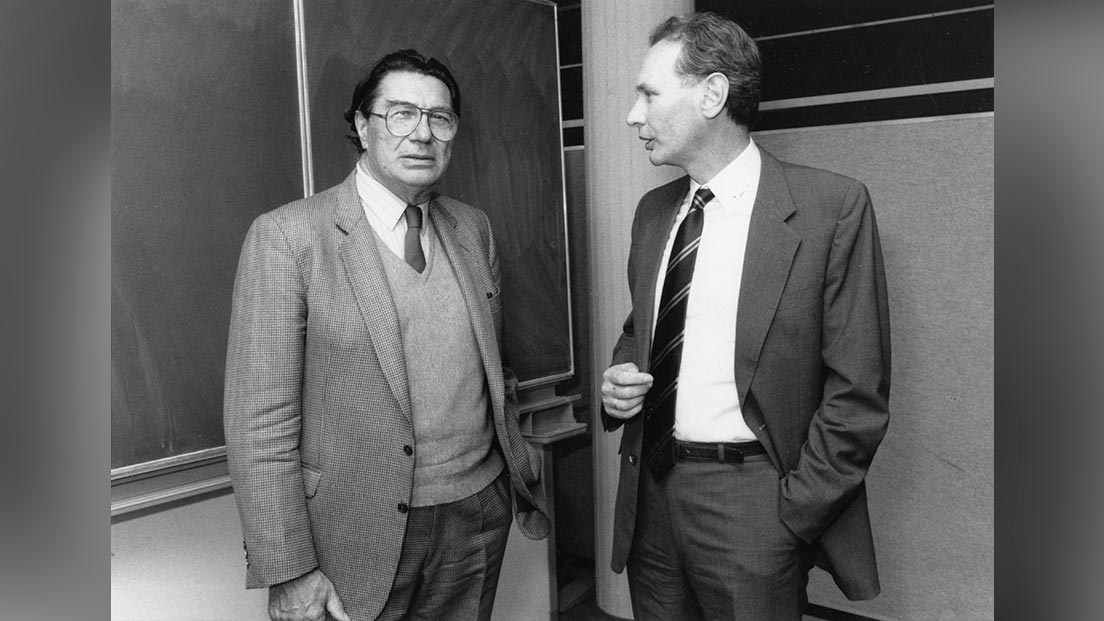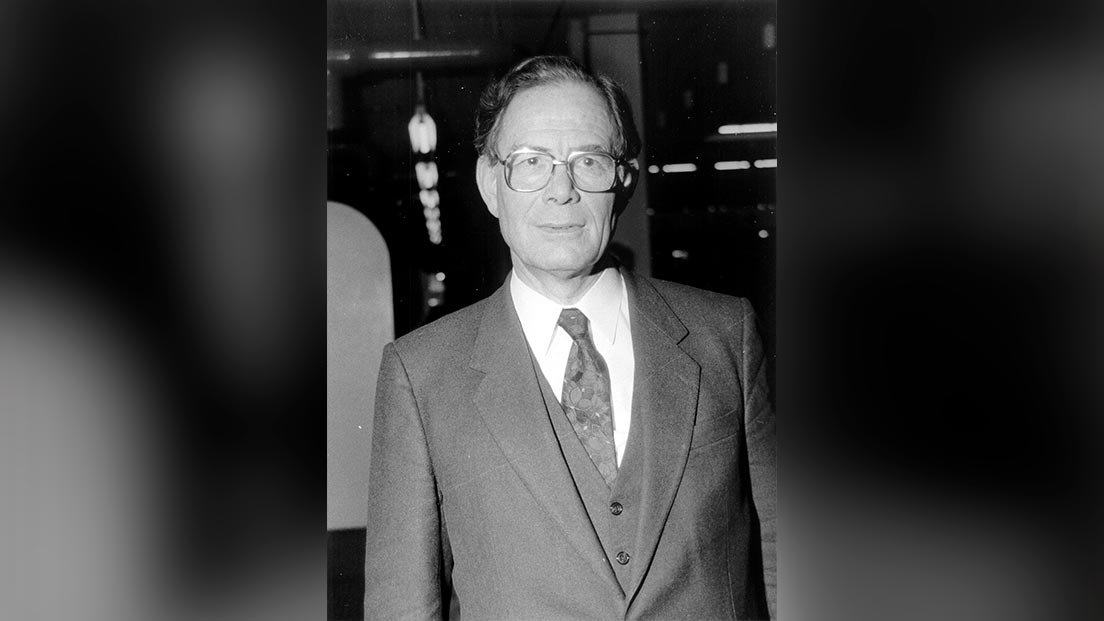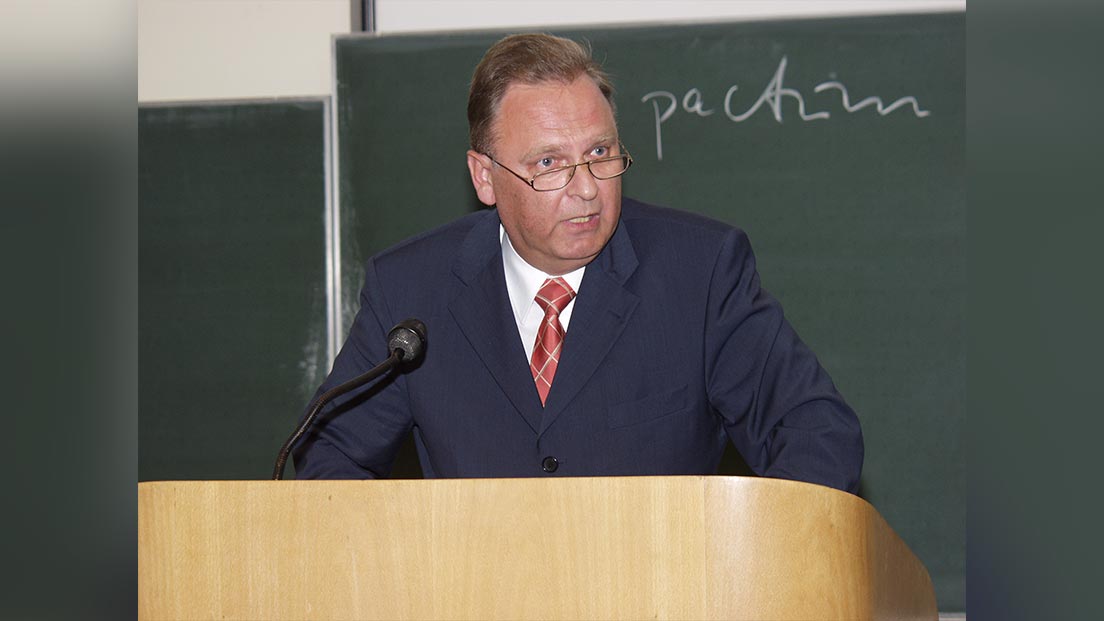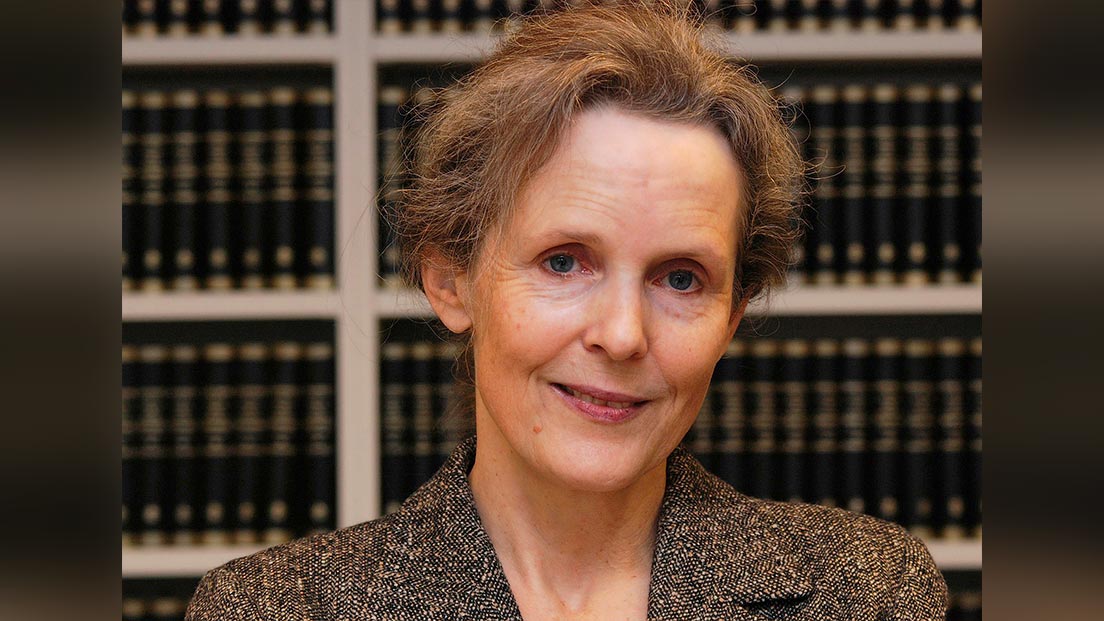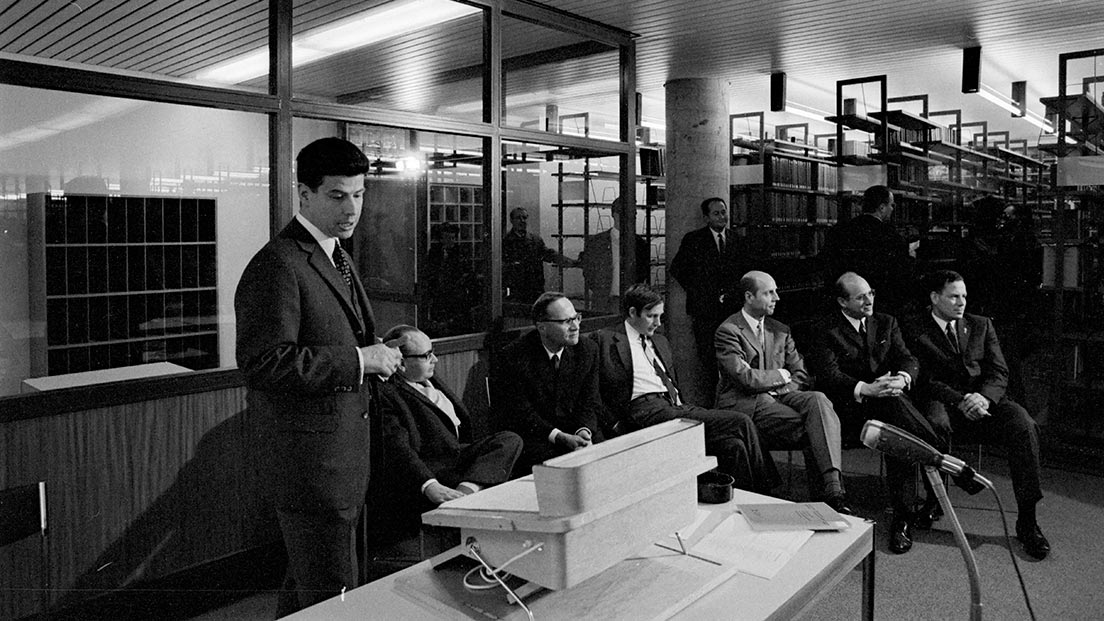
–
Photo: Bernhard Preker
Source: Universitätsarchiv Bielefeld, NEG 1.5_4_5
The subject of law was already strongly represented in the founding bodies of the University. Professor Dr. Ernst-Joachim Mestmäcker was first chairperson of the founding committee from 1967 and then elected as the first Rektor of the University in September 1969. In addition, five other law scholars – Ernst-Wolfgang Böckenförde, Günther Jahr, Armin Kaufmann, Werner Maihofer and Dieter Nörr – sat on the scientific advisory board in 1966. Together with Mestmäcker they formed the Faculty Commission for Law during the planning process.
–
Source: WDR and cinetv (Universitätsarchiv Bielefeld, FS 31)
The “Bielefeld Model” of one-stage legal education
Within the framework of the University as a reform institution, the Faculty Commission for Law sought to overhaul the system of legal education. In doing so, they were responding to decades of criticism that law studies were too theoretical, were lacking in practical relevance, took too long to complete and were overly weighted towards judicial office. After a legal framework was put in place, which allowed for the testing of other forms of education in 1971, the Faculty in Bielefeld – along with other universities in Germany – made its own contribution to the so-called one-stage legal education (“Bielefeld Model”). In the winter semester 1973/74, the first year of training began with 187 participants at Bielefeld University working within the framework of the one-stage training. The course was characterised by a close connection between practical and theoretical training, specialisation in the final phase of the training, a distribution of the examination material over the entire training period and supervision of the students in small groups.
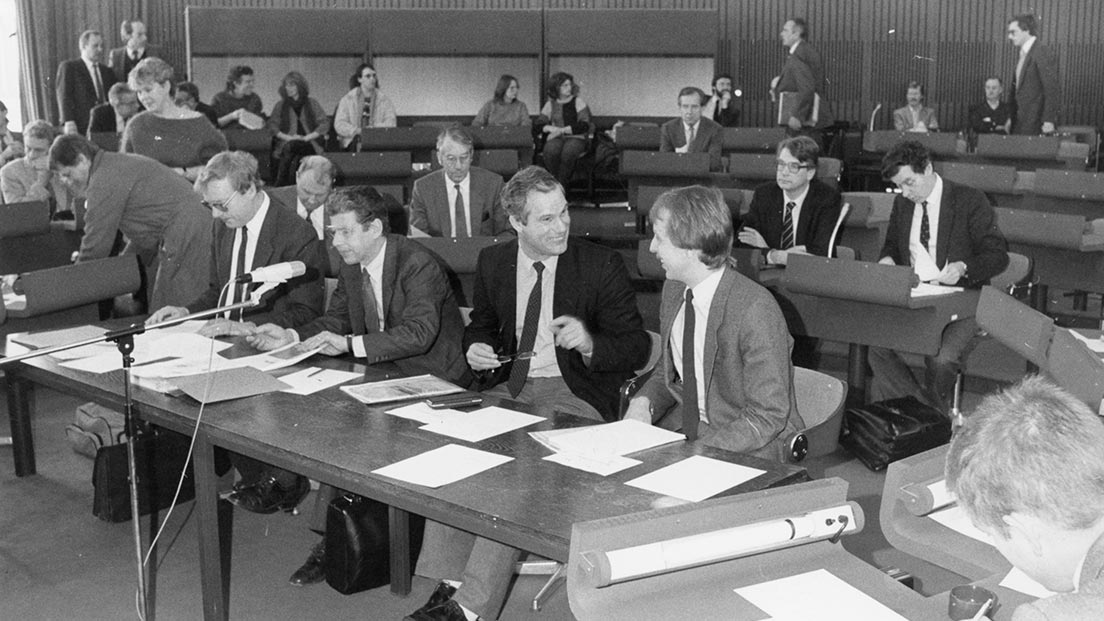
–
Photo: Manfred Kettner
Source: Universitätsarchiv Bielefeld, FOS 01922
After the change of government in 1982/83, this reform project was abandoned throughout Germany, primarily for political reasons. A bill that contained essential parts of the “Bielefeld Model” was not implemented.

With great interest from the judiciary, science, economics and politics, the Institute for German, European and International Business Law (IWB) is founded on 31 October 1988. Board members (from left) Professor Dr. Wolfgang Oehler, Professor Dr. Peter Hommelhoff, Professor Dr. Meinhard Hilf and Professor Dr. Norbert Horn.
–
Photo: Universität Bielefeld
Source: Universitätsarchiv Bielefeld.
Springboard Bielefeld
Since the changes in the early 1980s, the Faculty, which is now the biggest in the University, teaches its students in two stages (study and clerkship) in accordance with more traditional methods. However, it remains open to current study reforms. The Faculty, which has become more international, younger and more female, has also retained a special appreciation of the basic subjects of philosophy, history and sociology. For some of its members, the Faculty has also served as a springboard to higher offices. Just a few years after Maihofer’s appointment to Bielefeld, he became Federal Minister for Special Affairs (1972-1972) and then Federal Minister of the Interior (1974-1978) in a social- liberal coalition government. No less than five Bielefeld professors have held the job of a federal constitutional judge.
An interesting side-note: When Bernhard Schlink, born in Bielefeld, started as a research assistant of the Faculty of Law, it not only led to a career as a professor of public law and philosophy of law, but also as a bestselling author.

